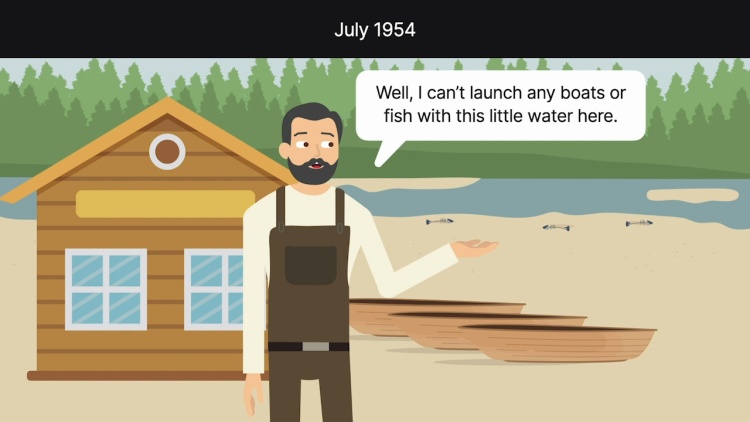Harris v. Brooks
Arkansas Supreme Court
283 S.W.2d 129 (1955)
- Written by Patrick Busch, JD
Facts
Theo Mashburn (appellant) and John Brooks (appellee) both leased land that included the shore and lake bed of Horseshoe Lake. Brooks used his leased land to grow rice and would draw water from the lake to irrigate his crop since at least 1931. In the years preceding this case, he used roughly the same amount of water each year. Mashburn knew of this when he leased a small site on the lake shore in March 1954. In April of that year, Mashburn began operating a boating and fishing rental business on his leased land. In May, Brooks began pumping water from the lake to grow rice. In July, Mashburn ceased operating his business because the water level had fallen too low for him to launch his boats and the fish had stopped biting. Brooks continued pumping water until August 20, when it was discovered that fish life in the lake was endangered by low water levels. On July 10, Mashburn filed a complaint in chancery court to enjoin Brooks from pumping water from Horseshoe Lake. Mashburn alleged that Brooks’ pumping had lowered the water level so much that the lake could no longer be used for fishing or recreational purposes. Brooks denied that his pumping had interfered with Mashburn’s use of the lake and claimed that the water level was lower than normal because the previous several years had been unusually dry. After a hearing, the chancery court denied Mashburn’s request for an injunction. Mashburn then appealed to the Arkansas Supreme Court.
Rule of Law
Issue
Holding and Reasoning (Ward, J.)
What to do next…
Here's why 907,000 law students have relied on our case briefs:
- Written by law professors and practitioners, not other law students. 47,100 briefs, keyed to 996 casebooks. Top-notch customer support.
- The right amount of information, includes the facts, issues, rule of law, holding and reasoning, and any concurrences and dissents.
- Access in your classes, works on your mobile and tablet. Massive library of related video lessons and high quality multiple-choice questions.
- Easy to use, uniform format for every case brief. Written in plain English, not in legalese. Our briefs summarize and simplify; they don’t just repeat the court’s language.





